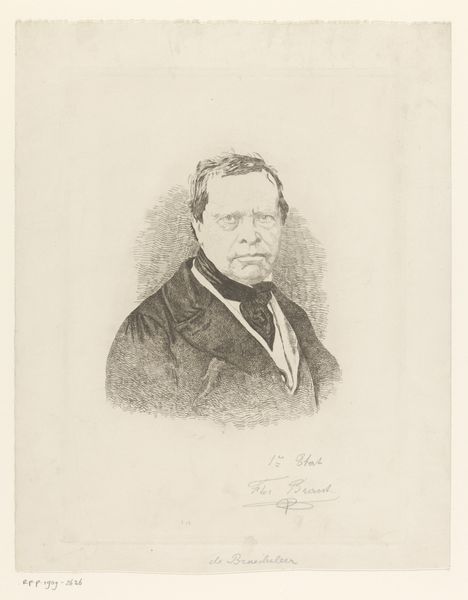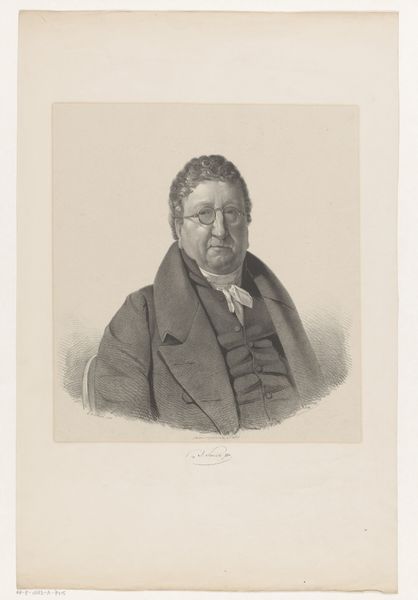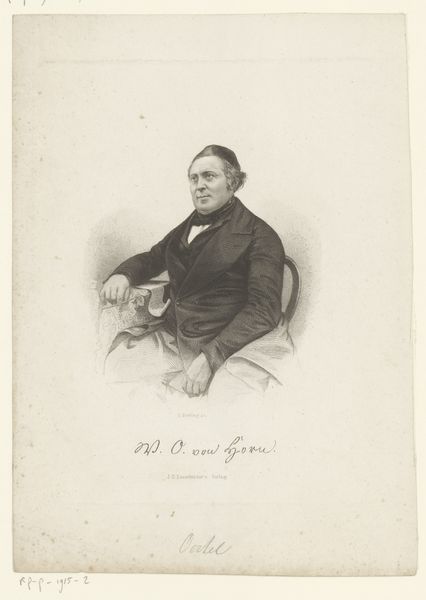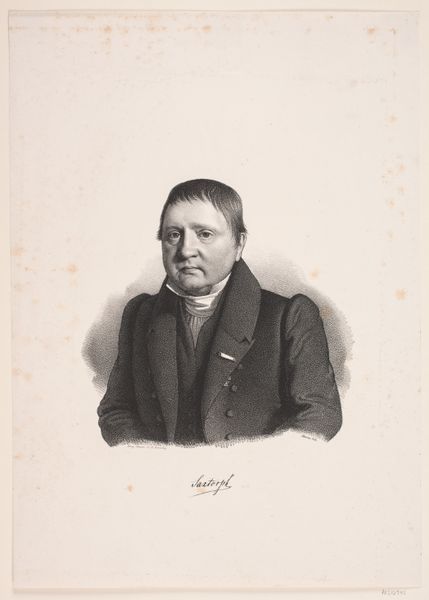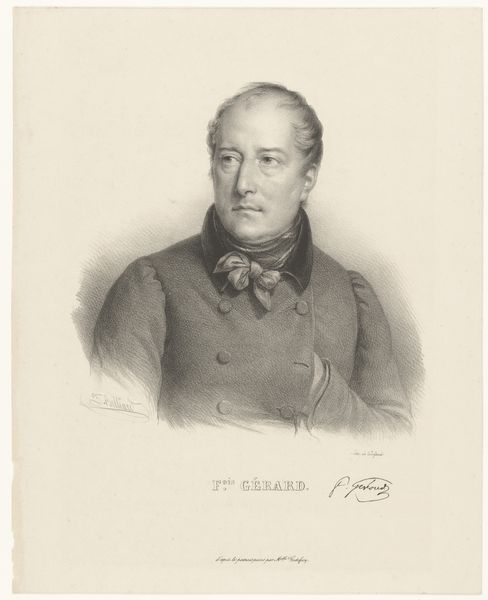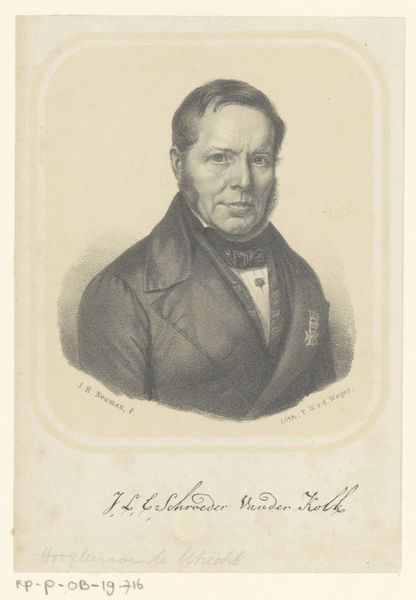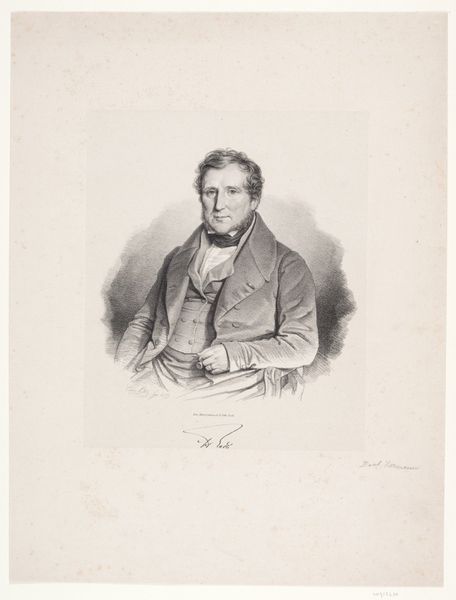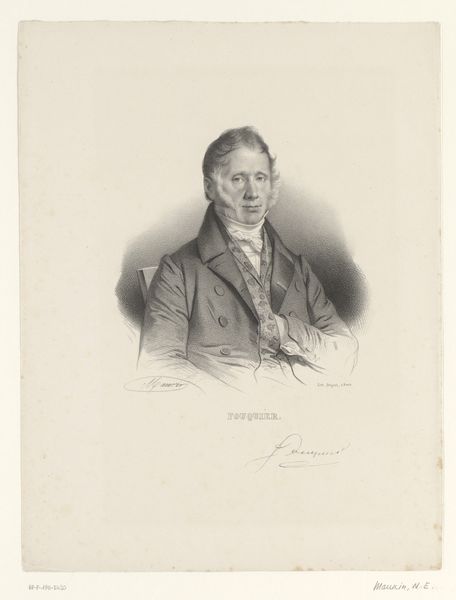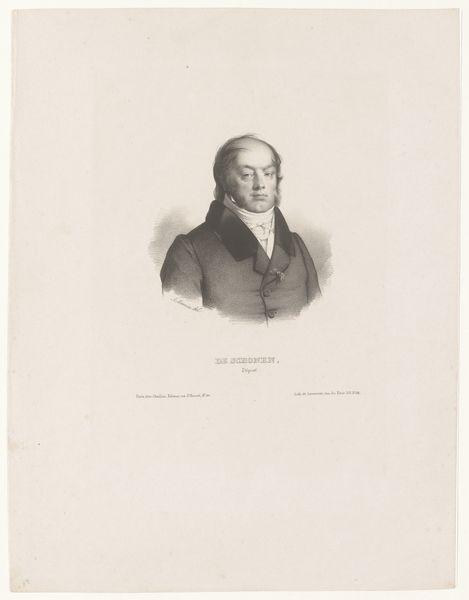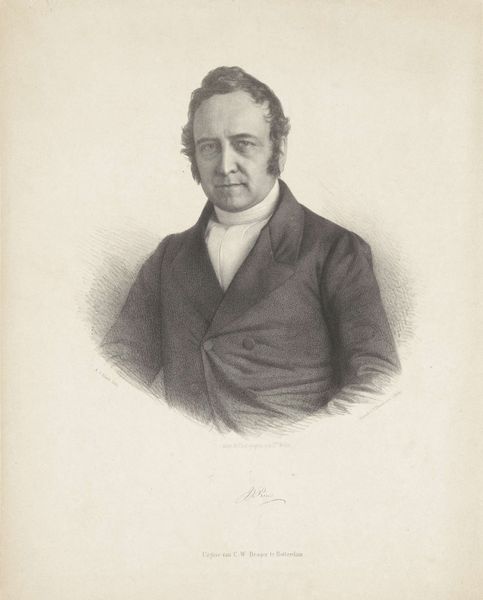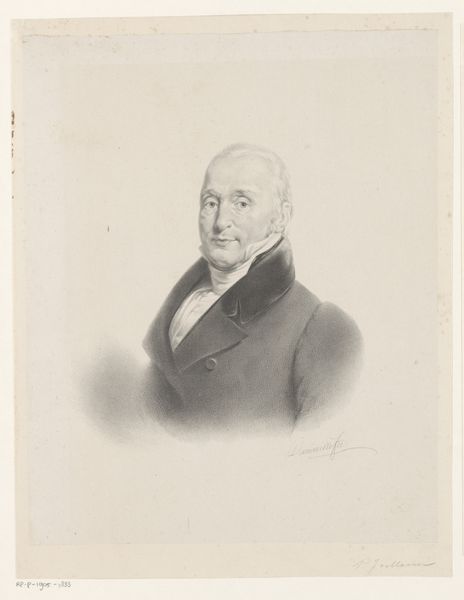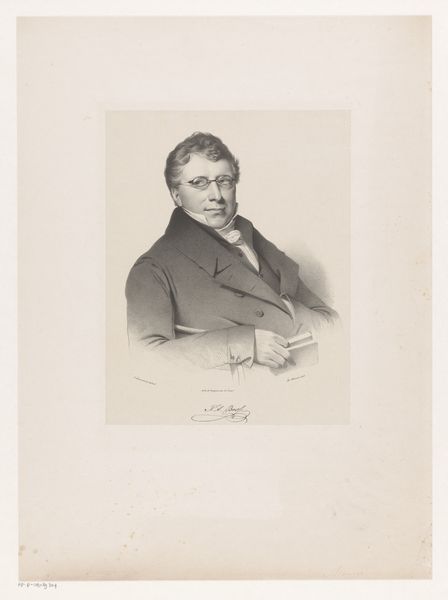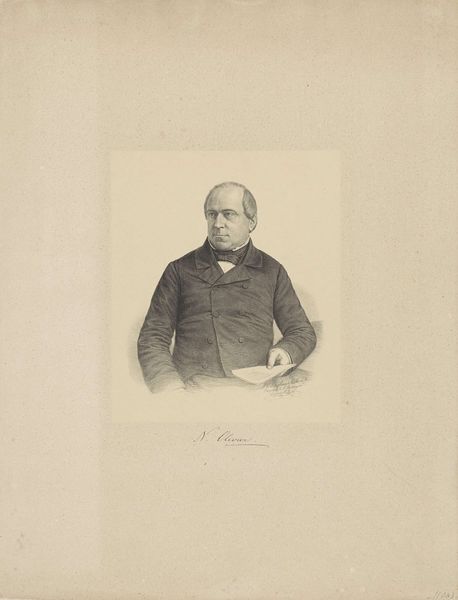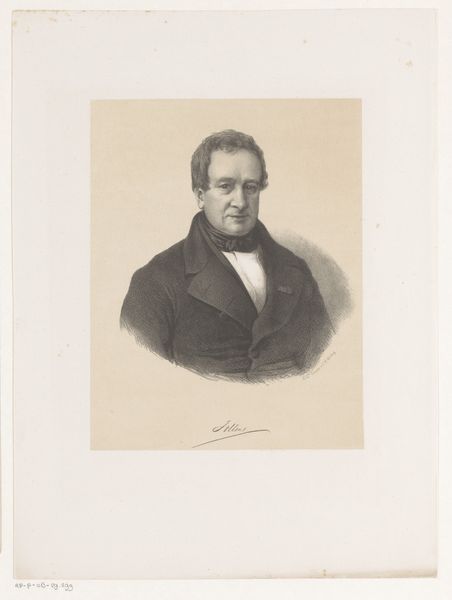
drawing, graphite
#
portrait
#
drawing
#
caricature
#
pencil drawing
#
19th century
#
graphite
#
portrait drawing
#
realism
Dimensions: height 487 mm, width 322 mm
Copyright: Rijks Museum: Open Domain
This portrait of Jacques Charles Dupont de l'Eure was made by Nicolas Maurin, who was known for his lithographs. Lithography is a printmaking process based on the chemical repulsion of oil and water. The image begins as a drawing on a flat stone or metal plate with a greasy medium. This drawing is then chemically fixed to the surface, allowing the artist to print multiple impressions. Look closely, and you can see the subtle gradations of tone, and the delicate lines achieved through this process. Lithography was revolutionary, a relatively inexpensive way to produce images. It democratized portraiture. Before, only the wealthy could afford painted portraits, but with lithography, images of political figures like Dupont de l'Eure became accessible to a broader public. Maurin’s skill in this medium allowed him to capture not just a likeness, but also a sense of the sitter's character, contributing to the rise of celebrity culture and political messaging. By considering the materials and techniques, we gain insight into the social and cultural context of this image, bridging the gap between fine art and popular culture.
Comments
No comments
Be the first to comment and join the conversation on the ultimate creative platform.
